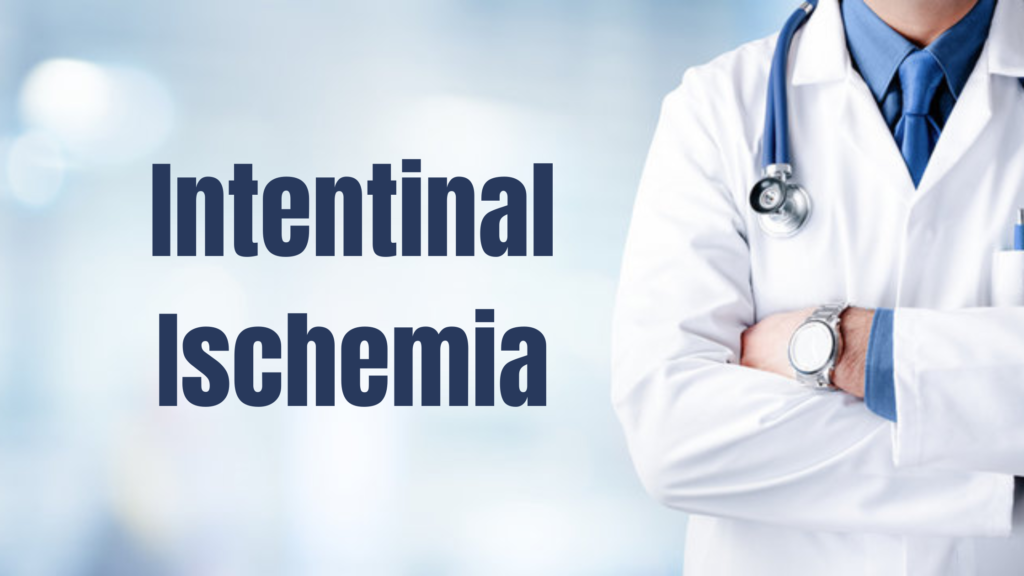🩸 Intestinal Ischemia
Intestinal ischemia occurs when blood flow to the intestines is reduced or blocked, leading to insufficient oxygen delivery to the intestinal tissues. This can cause tissue damage and, if untreated, life-threatening complications like bowel necrosis.
🔍 Types of Intestinal Ischemia
- Acute Mesenteric Ischemia (AMI)
Sudden loss of blood flow, usually due to a blood clot or embolism blocking the mesenteric arteries. - Chronic Mesenteric Ischemia (CMI)
Gradual narrowing of mesenteric arteries, often due to atherosclerosis, causing recurring abdominal pain after eating. - Non-occlusive Mesenteric Ischemia (NOMI)
Reduced blood flow without a blockage, often due to low blood pressure or heart failure. - Ischemic Colitis
Ischemia affecting the large intestine (colon), usually less severe and more common in older adults.
⚠️ Causes
- Blood clots or emboli (from the heart or arteries)
- Atherosclerosis (hardening/narrowing of arteries)
- Low blood pressure or shock
- Vasospasm or vessel inflammation
- Heart failure or arrhythmias (e.g., atrial fibrillation)
🩺 Symptoms
- Sudden, severe abdominal pain (acute ischemia)
- Cramping pain after eating (chronic ischemia)
- Nausea and vomiting
- Diarrhea or bloody stools
- Abdominal tenderness
- Signs of shock in severe cases (low blood pressure, rapid pulse)
🧪 Diagnosis
- Blood tests: Elevated lactate (sign of tissue damage), white blood cell count
- Imaging: CT angiography (best for visualizing blood flow), ultrasound, MRI
- Endoscopy: To assess bowel mucosa, especially in ischemic colitis
🛠️ Treatment
Acute Mesenteric Ischemia:
- Emergency surgery to restore blood flow or remove dead bowel
- Anticoagulation (blood thinners)
- Supportive care (fluids, pain management)
Chronic Mesenteric Ischemia:
- Lifestyle changes and medications to manage atherosclerosis
- Angioplasty or surgical bypass of blocked arteries
Ischemic Colitis:
- Supportive care: fluids, bowel rest, antibiotics if infection suspected
- Surgery if complications occur (perforation, necrosis)
🛡️ Prevention
- Manage cardiovascular risk factors (hypertension, diabetes, cholesterol)
- Avoid smoking
- Control heart conditions (e.g., atrial fibrillation)
- Regular medical check-ups if at risk
